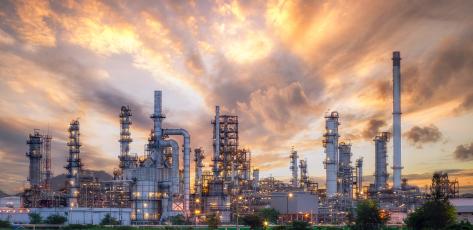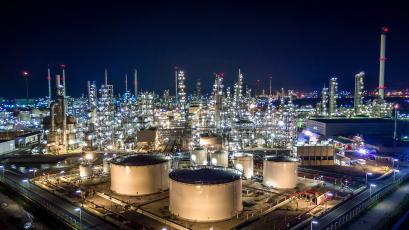Nothing is more important to refiners than the safety of our employees, contractors, neighbors and the communities we serve. AFPM members invest significant resources to continually improve our safety programs and practices, both as individual companies and as an industry. Nowhere is this more evident than in our alkylation units.
A quick refresher on alkylate
As we’ve already covered, alkylation is a key refinery process that produces alkylate, a necessary blending component for cleaner motor gasoline and aviation gasoline (avgas). Refiners use alkylate to manufacture fuels with high octane ratings, low Reid Vapor Pressure (RVP) and ultra-low emissions, attributes that help new vehicles operate at their highest efficiency.
Is alkylation safe?
Like every industrial process, alkylation poses risks, but refiners are well-equipped to manage them and safely operate alkylation units. In fact, because of the extensive safety and mitigation steps refiners take wherever alkylation is concerned, the risks pale in comparison to those we assume every day when engaging in routine activities like riding a bike, driving a car and playing with pets. See for yourself.
Based on data from the National Safety Council, actual incident reports and mitigation surveys, the theoretical lifetime odds of sustaining a life-threatening injury from HF alkylation in the United States are roughly 1 in 52 million. We regularly take part in much more “risky” activities.
How is HF alkylation managed?
The alkylation process is initiated by one of two primary catalysts — hydrofluoric acid (HF) or sulfuric acid. For both catalyst technologies, refineries use a range of equipment and procedures to safely produce alkylate. Here, we’ll take a closer look at risk mitigation for HF.
HF has been used in manufacturing for centuries and is one of the most thoroughly managed and highly regulated industrial chemicals. Today, it’s part of the manufacturing process for aluminum cans, soap, zero emission vehicle fuel cells, fluorescent lightbulbs and a wide range of other consumer products. In fact, refiners are responsible for just 2% of HF demand globally while fluorocarbon production for refrigerants and air conditioners accounts for roughly 60%.
Every industry in the United States that uses HF is subject to regulatory oversight from these and other agencies, depending on facility location:
- Environmental Protection Agency (EPA)
- Occupational Safety and Health Administration (OSHA)
- Department of Transportation (DOT)
- Department of Homeland Security (DHS)
- Department of Defense (DOD)
- Local Emergency Planning Committees (LEPCs)
Refiners take safe, reliable operations a step further. Our engineers and process safety teams are the world’s experts in fuel alkylation. Knowing the science behind HF alkylation is essential for safely and effectively managing HF catalyst and alkylation process units.
Since 1992, AFPM members with HF alkylation units have followed API Recommended Practice 751 (RP 751). RP 751 provides updated, continual guidance to refiners for how to safely operate these important units that are needed for the production of cleaner transportation fuels that meet today’s stringent environmental standards.
RP 751 is the collaborative product of an industry working group comprising nearly 100 of the top global leaders in HF alkylation science and process safety. The most recent edition of RP 751—its 5th—was released in August 2021 and reflets the newest data, industry learnings and technologies.
RP 751 provides guidance on incident prevention, detection and containment that is applicable and adaptable to every refinery with an HF unit. It is recognized by OSHA and the U.S. Chemical Safety Board as providing effective guidance for the safe operation of HF alkylation units and management of HF catalyst, toward the ultimate end of protecting people and the environment.
It is because of RP 751 and the many types of oversight refiners with HF alkylation units receive that risk from this process is so well managed. There have never been any life-threatening injuries to people in surrounding communities stemming from HF-related incidents at refineries. Wherever incidents have occurred and procedures have been followed, multiple layers of mitigation technologies have kept people safe—and learnings from any incidents are shared and carried into the next RP 751 edition.
Safety is always our number one job, and it extends well past the refinery fenceline to include our neighbors as well as our industry employees and contractors. By promoting safe, reliable operations through RP 751 and taking other steps to minimize risk, refiners are able to make full use of alkylate’s environmental benefits and produce cleaner fuels as a result.
AFPM members invest significant resources, above and beyond regulatory requirements, to continually improve our safety programs and practices. Nowhere is this more evident than in our alkylation units.



